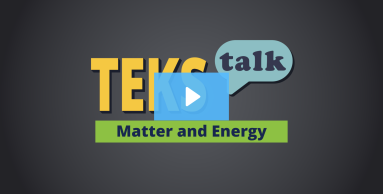
Knowledge and Skills Statement
The following is an example of how to assess proficiency of this student expectation (SE) or a portion of the SE.
Kindergarten students should be able to record their observations of physical properties of objects. They may do so by writing them down, drawing pictures, or stating them orally. Students can call out properties to include in the list and the teacher can write them down for all to see. When recording physical properties, students may use language like round, flat, or square to describe the shape of objects. When describing texture, students might use words like soft, rough, or smooth. When describing material, students might use language such as paper, metal, fabric, or wood. Once students have listed and the teacher has written down all of the properties, students may draw the objects in the right place on the chart, or may create a chart on their tables by sorting the objects according to their properties.
As students generate ways to classify objects, they may suggest classification schemes that are more subjective, such as pretty and not pretty. Guide students towards more objective categories by asking them if they all agree that the same objects are pretty.
The further explanation is designed to be a resource for educators that helps them better understand the topic their students are learning. Further explanations may be written at a more complex level than would be expected for students at the grade level.
Possible ways that students may sort objects include purpose (tool, toy, decoration, etc.), size (big or small), texture (rough, smooth, soft, hard) or weight (heavy or light).
Research
Palmeri, Amy, Amanda Cole, Sara DeLisle, Stacey Erickson, and Jennifer Janes. 2008. “What’s the Matter With Teaching Children About Matter?” Science and Children: States of Matter 46, no. 4 (December 2008): 20–23. http://www.jstor.org/stable/43175007. Accessed November 22, 2022.
Summary: In “What’s the Matter With Teaching Childern About Matter?”, common misconceptions children may have about matter are explained and instructional strategies to bridge that gap are provided. Children naturally use physical properties to describe matter, using words like "hard" and "thick" and describing odor. Students use their observations to classify matter.
